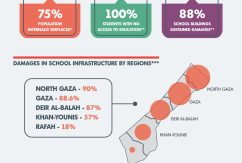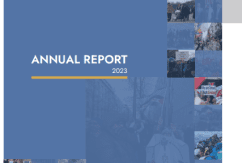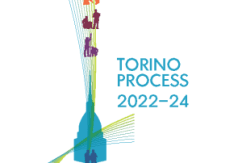Local Authorities: Partnerships for sustainable cities 2020

The global objective of this Call for Proposals is to promote integrated urban development through partnerships built among Local Authorities of the EU Member States and of partner countries in accordance with the 2030 Agenda on sustainable development.
Partnerships will support Local Authorities from partner countries to address sustainable urban development through capacity building and service-delivery. Peer to peer exchanges of Local Authorities are at the heart of this approach. Actions could support the building of new partnerships or contribute to upscale long-lasting partnerships and cooperation relations.
The new political priorities of the EU, and notably the “New Green Deal”, will be taken into account by raising the importance of sustainability enhancement in the different specific objectives.
The specific objectives of this Call for Proposals are:
- Strengthen urban governance: Continued promotion of good urban governance and the necessary policy and legal frameworks at national-government level (e.g. national urban policy) is essential to allow local authorities in the developing world to effectively implement national urban policies. In order to foster a system of multi-level governance (governance at national, regional and urban/local levels), local authorities’ role as autonomous policy makers, in line with the principle of subsidiarity should be promoted. Building such a system requires political will from all levels of government. The articulation of multiple governance levels is also an important factor for the effectiveness of sustainable landscape management, which is needed to reduce cities’ impacts on the surrounding ecosystems, and to allow these to continue providing essential services to urban populations. At city-level, this includes a territorial approach to local development allowing municipalities to take the lead in deciding what policy measures to take and how to implement them, while consulting and reporting back to communities.
- Ensure social inclusiveness of cities: Cities represent the closest tier of government to citizens and can help ensure humanitarian and development actions adapted to them and to local specificities. Urban poverty and exclusion should be addressed through appropriate policies. These policies should contribute to prevent both the causes and effects of inequality, marginalisation and segregation, including tackling the needs of women, children and youth, as well as the needs of marginalised and vulnerable groups such as disabled people, displaced people and migrants. Their needs should also be included in urban planning processes, and translated into concrete actions on the ground. Examples of such actions include improved access to water and sanitation, innovations to foster increased safety and security, protection of human rights and personal welfare, access to independent and fair legal systems, and promotion of inclusive employment and growth. The fight against inequality and marginalisation requests also integrated urban development actions, which include the use of culture as factor promoting aggregation and inclusiveness (e.g. cultural urban development in marginal areas and restauration of cultural heritage in historical urban centres).
- Improve resilience and greening of cities: Promotion of a shift towards sustainable and green urban development. The trend towards an urban circular economy in developing-world cities should continue. This could increase the quality of life, foster urban green growth and make cities more resource-efficient through sustainable modes of production and consumption. Sustainable energy solutions are also a priority for many cities in developing countries, which have a major impact on surrounding ecosystems due to their firewood and charcoal consumption, also affecting overall urban air quality. It also contributes to reducing emissions of greenhouse gases from the use of fossil energy sources or low-efficiency technologies including for transport, decreasing pollution levels, reducing waste and making cities more resilient to climate change. Better management of urban biodiversity and protected peri-urban areas, especially in planning of urban expansion, will contribute to maintaining ecological connectivity and increase city dwellers’ environmental awareness. Better accounting for natural capital, for example by means of payment mechanisms for ecosystem services, such as water funds, or greening of municipal taxes, are important drivers of sustainability.
- Improve prosperity and innovation in cities: The EU supports cities as actors of open innovation. This means enabling interactions between people and organisations involved in the creation, design and implementation of integrated and innovative policy actions for urban and peri-urban areas. EU development cooperation aims to make cities more innovative to foster sustainable local economies and create employment. In this context, different urban realities offer opportunities for innovative and competitive solutions to societal and environmental problems: while the metropolitan areas and the big or mega-cities are the engines of the global economy, primary and secondary cities are hubs that drive regional or local growth. Providing enabling conditions for circular economy initiatives enhances opportunities to improve both the economic dynamism and the environmental sustainability of cities. Green public procurement can be a powerful incentive for this transition. Both public and private finance may be considered for investments in and maintaining of municipal infrastructure. Priority sectors of municipal infrastructure include: urban mobility and transport, water supply and sanitation, solid waste management, energy efficiency and renewable energy services.
Strengthen institutional resilience in context of fragility: addressing fragility require tailoring differentiated approaches to fragile contexts and working across the full spectrum of issues, some of which are inherently difficult and sensitive. In this call for proposals, “fragility” is considered from a governance perspective for instance on cases where the central state is weak or ineffective, failing to exercise its prerogative or to provide basic services to the population on its territory or a part of the territory. Local authorities could therefore play a key role to build or re-build foundations for peaceful and stable society, basis for an inclusive growth and a sustainable development and laying the foundations of participatory and accountable decision-making. Local authorities could also act as coordinators of actions carried out by other actors, such as public or semi-public body / agency (example: water distribution, waste management, etc.), universities and research centres, civil society organisations or even local private sector, to unleash the potential of its territorial development.
Other Opportunities





































